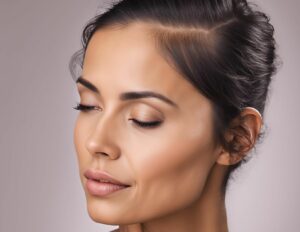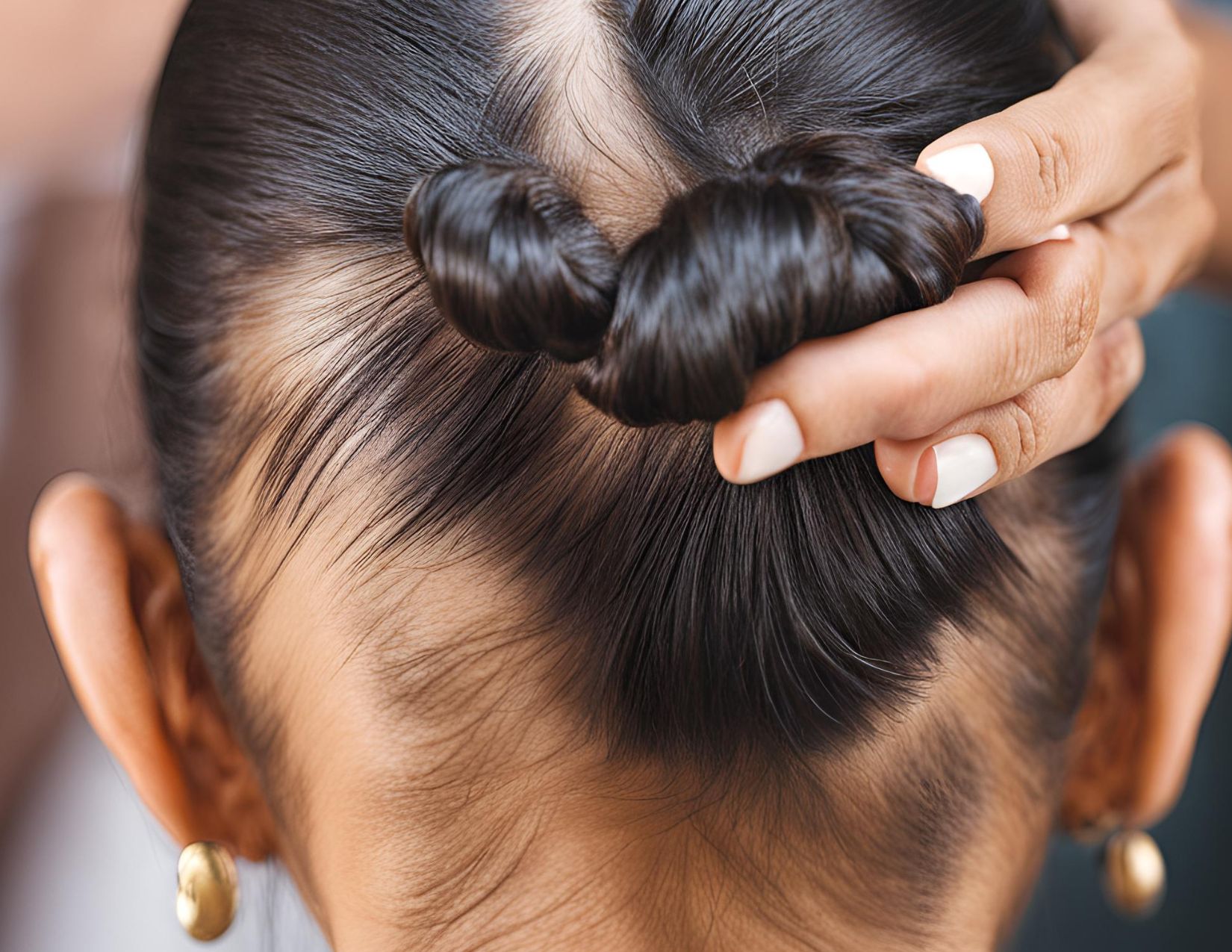Hair loss isn’t just something that happens to men – plenty of women face this challenge, too! Getting to grips with why it happens is the first step in finding the right solution. For starters, genetics play a big part. If your mom or grandma had thinning hair, there’s a chance you might deal with the same thing. Hormonal shifts, whether from pregnancy, menopause, or thyroid issues, can also send your hair on a shedding spree.
Then there’s stress, the uninvited guest that messes with everything, including your hair. Our bodies can react to high stress by pausing hair growth, so managing stress levels is super important. Plus, some health issues and medications might bring unexpected hair loss, so keeping an eye on those factors matters.
Now, not all hair loss is created equal. Ever heard of alopecia areata? It’s an autoimmune condition where your body mistakenly thinks your hair is the enemy and attacks it. There’s also telogen effluvium, often a temporary loss triggered by stress, surgery, or a major event. Androgenetic alopecia, or female pattern hair loss, is another common type that usually shows itself as thinning on the top of the head.
Figuring out the exact cause can feel like solving a puzzle but it’s a must-do. Knowing the type of hair loss points you toward treatments that can actually make a difference. Whether you’re spotting more strands in the shower or noticing a thinning patch, getting familiar with the problem is key. It’s about turning that frustration into action and knowing there’s a way forward.
Nutritional and Lifestyle Approaches to Combat Hair Loss

Alright, let’s chat about something crucial when it comes to keeping your hair in check—your diet and lifestyle. Believe it or not, what you eat has a massive impact on your hair health. Vitamins and minerals like biotin, iron, zinc, and vitamins A, C, and E are vital for hair growth. Missing out on these can leave your hair looking lackluster and thin.
Incorporating more leafy greens, nuts, fish, and eggs into your meals can give your hair just what it needs to grow strong. Protein is a key player in your hair’s health. Hair is mostly made of protein, so lacking it is like building a house without bricks.
Stress isn’t doing your hair any favors either. It can halt hair growth, pushing hair follicles into a resting phase. Regular exercise, meditation, or any activity that helps manage stress goes a long way in keeping those locks intact. Plus, getting good sleep is essential for your body’s ability to repair and regenerate, including how your hair grows.
Environment and habits matter too. Smoking, heavy drinking, and exposure to pollution can make hair brittle and increase fall-out rates. Taking mindful steps to reduce these factors can make a significant impact. It’s not just about avoiding the bad, though—sometimes it’s adding good habits into your daily routine that makes all the difference.
Adopting a well-rounded lifestyle doesn’t just benefit your hair; it enhances your overall health. Feeling good inside reflects on the outside, making your hair not only stay in place but also look vibrant and healthy.
Medical Treatments and Therapies for Hair Loss

When it comes to medical treatments for hair loss, there are some tried-and-true options on the table. Minoxidil is a well-known treatment that can be used to help stimulate hair growth. It’s a topical solution applied directly to the scalp, and it can work wonders for some folks. While it’s not a miracle cure, many women see noticeable improvements over time.
Another option is Finasteride, usually more popular among men but can be used by women under certain conditions with a doctor’s supervision. It’s a prescription medication taken orally that reduces hair loss by blocking certain hormones.
For something a bit more intensive, hair transplant procedures are available. These involve moving hair from one part of the scalp to a thinning area and can offer long-lasting results. Though it’s a bigger commitment in terms of time and money, it offers a solution when other treatments aren’t quite cutting it.
Low-level laser therapy (LLLT) is another modern approach to tackling hair loss. This non-invasive treatment uses laser light to stimulate hair follicles and can be a game-changer for those seeking less traditional methods.
The exciting new kid on the block is platelet-rich plasma (PRP) therapy. This involves injecting concentrated plasma from your own blood into the scalp to encourage hair growth. Although still relatively new, it’s showing promise in the fight against hair thinning.
These treatments aren’t one-size-fits-all, so it’s crucial to talk with a healthcare provider to find the best fit. Tailor-made solutions tend to work best, reflecting your unique hair loss causes and lifestyle.
Natural Remedies and DIY Solutions for Hair Regrowth
Alright, let’s switch gears to something a bit more natural. Loads of folks swear by essential oils like rosemary and peppermint. A few drops mixed with a carrier oil and massaged into the scalp can stimulate growth and make your scalp feel pretty fresh.
Speaking of massages, giving yourself a regular scalp massage is a simple, stress-relieving way that might help improve hair thickness over time. Increased blood flow to the scalp could offer benefits without much risk.
Then, there are the herbal routes—ginseng, saw palmetto, and even green tea extracts. These herbal supplements are touted for potentially boosting hair health by interacting with hormonal pathways and improving circulation.
DIY hair masks made from ingredients like avocado, coconut oil, and honey can also work to nourish your hair from root to tip. While these won’t perform miracles overnight, they do offer moisture and shine that tired hair often lacks.
Going natural is fantastic, but it’s important to keep an eye on any adverse reactions. A patch test with any new oil or mask helps dodge unwanted surprises, especially if you’ve got sensitive skin.
Natural treatments add quite a variety to a hair care routine, provide a sense of control, and might just become a relaxing part of your self-care routine.
Hair Care Practices to Prevent Further Hair Loss
Getting smart about your hair care routine is key. Start with keeping things gentle. Using a soft brush and being kind when you detangle wet hair can prevent unnecessary breakage.
Choosing the right products makes a huge difference, too. Look for gentle, sulfate-free shampoos and conditioners that won’t strip your hair of its natural oils. Over-washing is not doing your hair any favors, so washing less frequently can help maintain those oils your hair loves.
Styling is where a lot of unnoticed damage happens. Limit the use of heat tools like straighteners and curlers. When you do use them, always apply a heat protectant. Your hair will thank you later.
For those who love color, try to extend the time between touch-ups. Using semi-permanent dyes or ones without ammonia might lessen the toll on your locks.
And finally, protective hairstyles can be a game-changer. Braids, buns, or loose ponytails reduce the stress on hair and help protect it from the environment. Just make sure they’re not too tight—your scalp should never feel sore when you let your hair down.
Having a mindful approach to hair care doesn’t just preserve what you have; it sets the stage for healthier future growth.
When to Seek Professional Help for Hair Loss
Sometimes, even the best homecare and over-the-counter methods might not cut it. If you’re losing sleep over hair loss, it’s time to call in the pros.
A good point to consider professional help is if you’ve noticed rapid hair loss, bald spots, or any accompanying symptoms like itching or pain.
Consulting with a dermatologist or a trichologist—those are the hair and scalp specialists—can provide insight into what exactly is going on. They’ll conduct tests to pinpoint causes and create a personalized treatment plan.
Expect a thorough examination, which might include scalp analysis or a biopsy, and don’t be shy to ask questions about potential treatments and what’s best suited to your specific needs.
Professional help isn’t just about stopping hair loss; it’s about understanding your hair’s health intricately and knowing there’s support available. Specialists’ tailored advice can be instrumental in managing and potentially reversing hair loss.
Finding the right professional means checking their credentials and reviews, as you want to ensure you’re in the hands of someone trustworthy and experienced.

